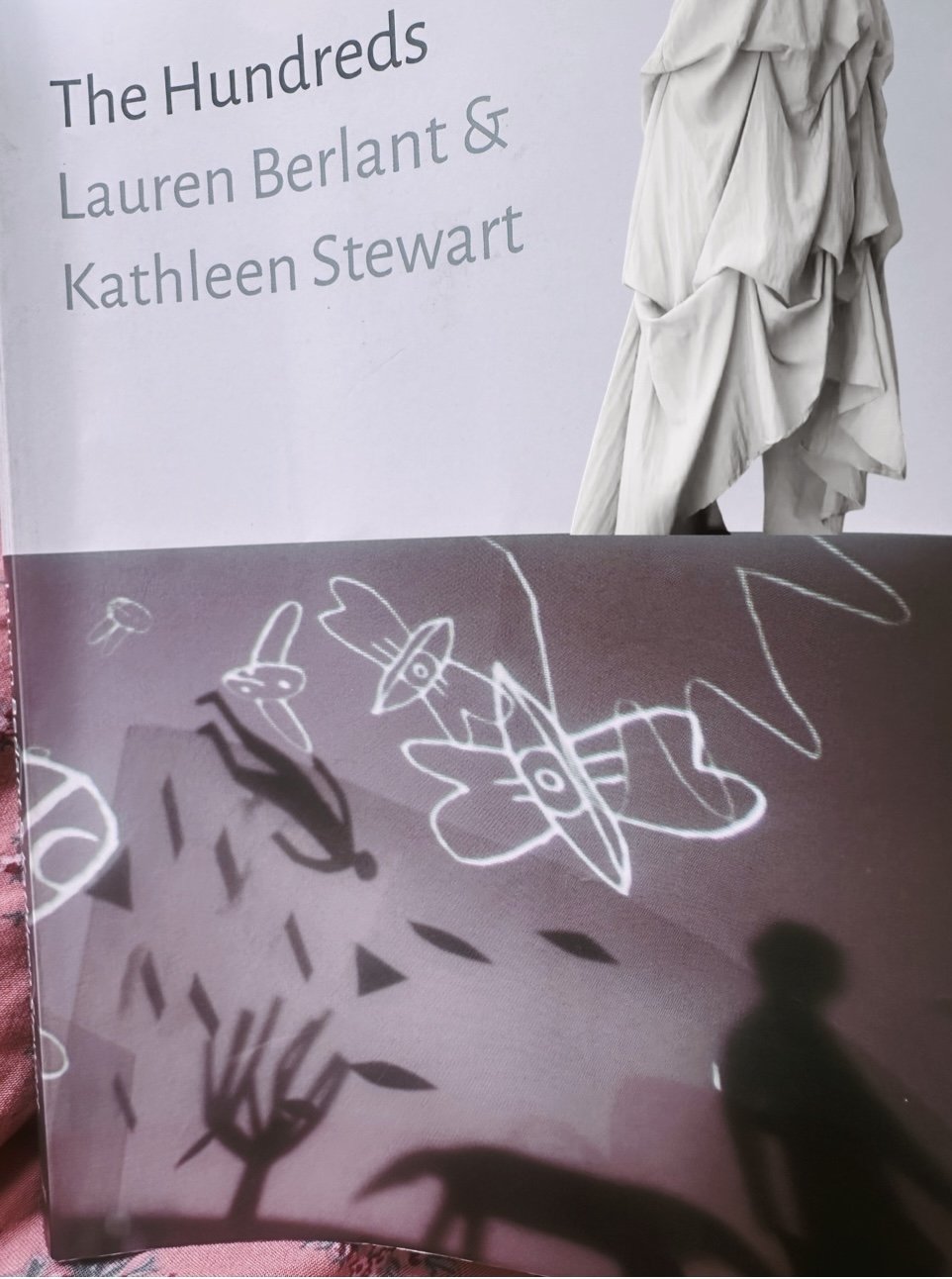We write to be in the reverb of word and world.
— Lauren Berlant and Kathleen Stewart, “In it”
RECTO
Why the Daniel Lafore song?
Because gender, like genre, still blurs “me”, and juxtaposition within the titular still thrills me . . . as does the friction generated within the binary of “Un baiser, une bombe,” which automates the association between a kiss (gendered masculine) and a bomb (gendered feminine).
I am always looking for thing within the thingness of what we construct. What we assume. What we call holy and bundle as ‘true’. What Lauren Berlant and Kathleen Stewart called the “reverb of word and world.” Whether studying the machine of what we mean in language or seeking the bloops in the operative games, there is the pleasure of playing and being played.
And, in that vein, there is a little game I play with myself that involves chasing the overheated energy deposited in the number 69 through any poetry book I happen to read, where opening the book to page 69, beginning in the scandalous energy of taboo and totem, ushers me into the text differently.
Over the years, a chorus of 69’s has gathered itself from the voices composed of these page-69-poems and today is as good a day as never to share the 69-song found in The Hundreds by Lauren Berlant and Kathleen Stewart.
“We write to invite and to goad, to bring the weight of scenes home; not to model,” Berlant and Stewart say in the hundred of parsing the phrase, “In it.”
In the spirit of unforseen innings, please take these additional in-roads to theory and speculative poetics from The Hundreds, accompanied by images that struck me—- and are present in relation to these texts for no other reason apart from interior lightnings, which may or may not be a provocation to your own writing and thoughts:
The dread of another virtue breakfast was superseded by politics, a painful twist of need and interest and vigilant bad reading. There was an online Punch and Judy show with all the thrill and erotic boredom of your average stalker rom-com. When fools fuck up, one faction calls the other retro, a mole, a vampire, a baby. A mob of tweeting lurkers converges on every speculative heart. The mix of disgust and love keeps me quiet.
(from “The Week in Shakes,” on the day designated as “Tuesday”)
4. I have loved me so many assholes. The one who loved calling other people stupid, the one who insulted secretaries, the ones who puffed themselves up so big that the rest of us became minor characters, the ones who secured their charisma by shitting on lost and current beloveds, the ones who were so intentionally good there was no room to breathe, the others who blamed the world for their angst and every hiccup, the ones who thought they were all that and the opposite too, plus the ones I was related to.
(from the inventory piece titled “Friendhating”)
Excerpted from the hundred titled ““Friendhating”
Harder's not always the same thing as worse. In the chronicles of disappointing touch there's a lifetime of accommodation and the throat wedges, trying not to suffer from the wrong wants again. Against that wind, the question asks itself: what is it to be naked among men?
(from what may be “What is like to be naked among men,” although I have misplaced my copy of the book and can’t looking for it to confirm this right now so I leave it with the felt title, infused with tentativity)
Fantasy stains the approaching air like the eddy of a fuck-you said out of love, so warm you don't savor it: it savors you. This genre of the world jolt makes episodes possible.
(from “Everyday Life in Early Spring”)
VERSO
“Style is another matter-no new thought without new style (Nietzsche). Here you go, Fred. Style is a test. Any objections? (Sort them all out, and you have a totally sick objectivity—Latour.) Yes, it is fictocriticism: The ficto- side of fictocriticism follows the twists and turns of animated language as it finds new pathways. The -criticism part comes in the risky leap of taking the story to a different “world,” where it might be tested by an unexpected public.”
— Stephen Muecke, “Untitled”
“You remind me to point sideways, to the shapeless thing I want to name, the thing that hangs around. It shifts its shape. A shifter's only meaning is the object it happens to point to. The little girls pose with one hand bent from the wrist as if once in some other place or time this was the way a princess stood. Melodramas of mixed ontological status hit swells of feeling and the force of things colliding. You opened the window to get rid of the atmosphere; but the air just swelled.”
— Susan Lepselter, “The Index”
Kiki Smith’s Moons
Ars for the fragment.
Enter the “POSTLUDIC” . . . to borrow a schemata from Berlant and Stewart, or to inscribe a repetition to admire its shift in velocity vis a vis its own shadow:
So I sit down again to write. The mark of history on my back turns my front to the wind, like Adorno said. He's on my mind this morning, writing a wrecked world back into endurable form. He's on my mind this morning, waiting in a lonely place for his collaborator, without whom there's only loose scrolling through a life built carefully just beyond the nose.






